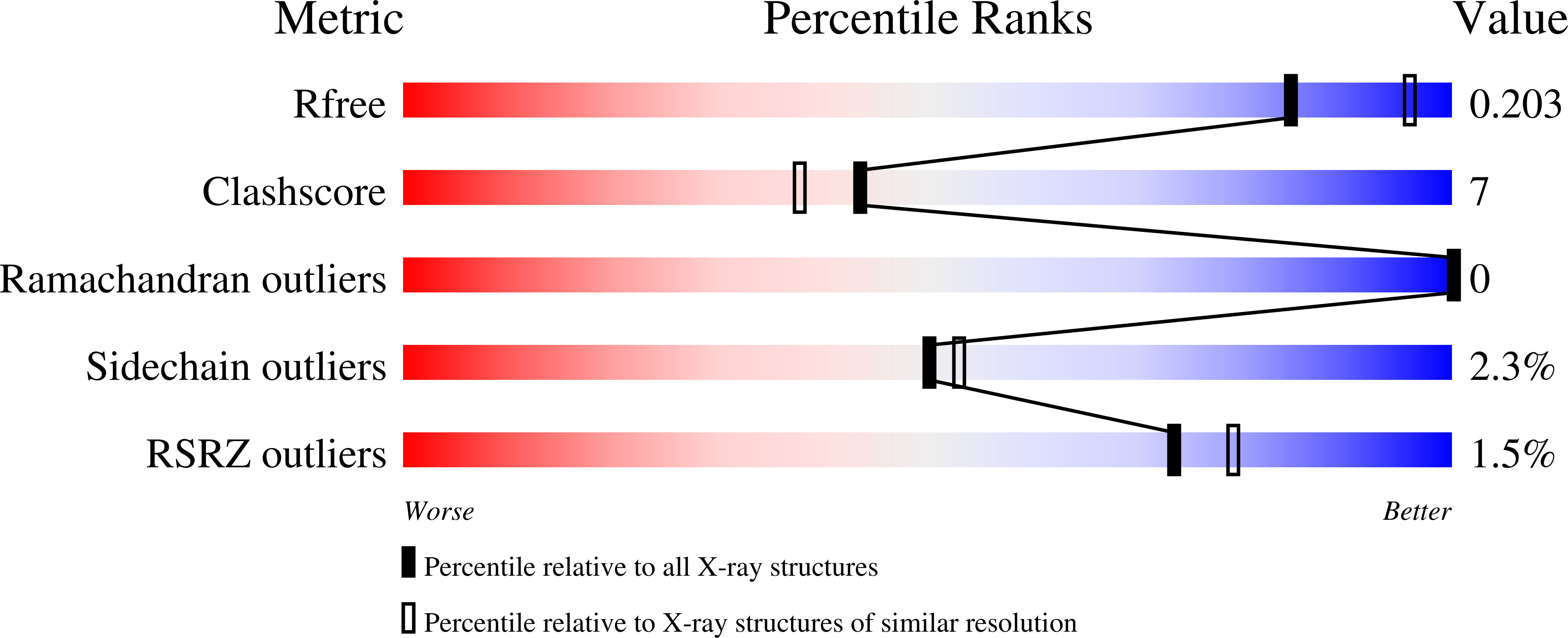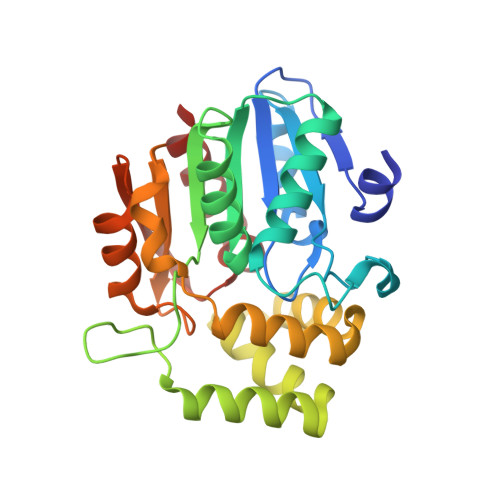DAD2 Is an alpha/beta Hydrolase likely to Be Involved in the Perception of the Plant Branching Hormone, Strigolactone
Hamiaux, C., Drummond, R.S., Janssen, B.J., Ledger, S.E., Cooney, J.M., Newcomb, R.D., Snowden, K.C.(2012) Curr Biol 22: 2032-2036
- PubMed: 22959345
- DOI: https://doi.org/10.1016/j.cub.2012.08.007
- Primary Citation of Related Structures:
4DNP, 4DNQ - PubMed Abstract:
Strigolactones are a recently discovered class of plant hormone involved in branching, leaf senescence, root development, and plant-microbe interactions. They are carotenoid-derived lactones, synthesized in the roots and transported acropetally to modulate axillary bud outgrowth (i.e., branching). However, a receptor for strigolactones has not been identified. We have identified the DAD2 gene from petunia, an ortholog of the rice and Arabidopsis D14 genes, and present evidence for its roles in strigolactone perception and signaling. DAD2 acts in the strigolactone pathway, and the dad2 mutant is insensitive to the strigolactone analog GR24. The crystal structure of DAD2 reveals an ¦Á/¦Â hydrolase fold containing a canonical catalytic triad with a large internal cavity capable of accommodating strigolactones. In the presence of GR24 DAD2 interacts with PhMAX2A, a central component of strigolactone signaling, in a GR24 concentration-dependent manner. DAD2 can hydrolyze GR24, with mutants of the catalytic triad abolishing both this activity and the ability of DAD2 to interact with PhMAX2A. The hydrolysis products can neither stimulate the protein-protein interaction nor modulate branching. These observations suggest that DAD2 acts to bind the mobile strigolactone signal and then interacts with PhMAX2A during catalysis to initiate an SCF-mediated signal transduction pathway.
Organizational Affiliation:
Plant & Food Research, Private Bag 92169, Auckland 1142, New Zealand.


















